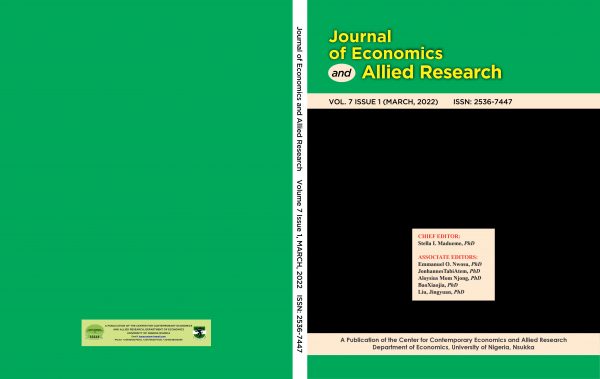
FINANCIAL DEVELOPMENT, PUBLIC HEALTH EXPENDITURE AND HEALTH
OUTCOMES: EVIDENCE FROM NIGERIA
Temitope, Sade Akintunde and Oladotun Daniel Olaniran —————————(13-24)
ABSTRACT
This study examined the link among financial development, public health expenditure and
health outcomes in Nigeria between 1981 and 2020. Annual time series data was extracted
from the Central Bank of Nigeria (CBN) statistical bulletin and the World Development Index
(WDI), and the data was analysed using the Autoregressive Distributed Lag Model (ARDL)
with Bounds Testing. The result showed that government expenditure on health worsens health
outcome (life expectancy) in the short run while it improves life expectancy in the long run.
Also, the result showed that the effect of financial development on health outcome is sensitive
to the financial development indicator employed while inflation negatively and significantly
influenced health outcomes in Nigeria. The study recommends increased spending on the
health sector by the government and a stable financial sector, in order to significantly drive the
desired level of health outcome in Nigeria.
Keywords: Financial Development, Health Expenditure, Health Outcome, Autoregressive
Distributed Lag, Bounds Test Cointegration.
JEL Classification Code: C22, E44, H51, I15
Click on the link below to download the paper
Online Version – JEAR Volume 7, Issue 1 – -March 2022_compressed




